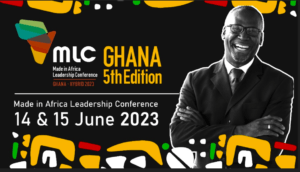Last week, I shared thoughts on the 5 C’s for a great employee (Competence, Character, Culture, Calling and Chemistry). Over the next five weeks, I will be expanding on each one of the C’s, not only on what they mean but also on strategies for assessing whether the employee you are about to hire possesses this facet for your organisation.
*****************************************************************************
Character
In the United States Military Academy at West Point (an institution generally regarded as the best leadership development institution in the world), cadets are introduced to an honour code: A cadet will not lie, cheat or steal, nor tolerate those who do. It is a simple statement with life-changing importance. West Point admits less than 10 percent of the people who apply to be admitted, and once admitted only about 70 percent of the cadets successfully make it through the four-year military, academic and leadership programme to become commissioned as officers in the United States Army.
Most of the dropouts occur during the first year at West Point, when new cadets go through the shocking experience of boot camp and military life – and some decide that they may be better off enjoying life in a regular university. After the first year, the dropout rate reduces significantly; and when there are dropouts, it is sometimes due to violations of the honour code.
The honour code is one of the sacred codes at West Point, and violations of the code, once proven, result in immediate separation/termination from the Academy. It is better to be caught drunk in class or naked in the mess hall than to be caught lying about anything or cheating in a test at West Point.
This strict adherence and indoctrination exists because the military commanders understand that when leaders are being trained to lead people into deadly combat, the issue of trust between the leader and their soldiers is absolutely non-negotiable. If the soldiers do not trust their leader because their leader lacks integrity or courage, the soldiers will not obey the leader when the bullets are flying. If they do not trust each other’s integrity and courage, they will not be willing to fight as a unit and take risks for each other. Trust is essential for organisations, big and small, to be effective.
At Ashesi University, Patrick Awuah (founder) and his team successfully implemented an honour code of their own. Students at Ashesi, after the completion of their first year, vote on the adoption of the honour code. If a supermajority of them vote in favour (75 percent), the code is adopted and students monitor each other to ensure the code is not violated.
As a result, examinations at Ashesi for non-first year students are conducted without invigilators. Despite initial scepticism from regulators about this process, Ashesi University has successfully produced graduates who are not only competent because of world-class teachers and teaching methodologies, but also graduates who are trustworthy because of their integrity and courage.
Today Ashesi graduates continue to be sought-after in companies throughout Africa. The programme is so successful that Ashesi now readily shares its methodologies with other universities seeking to emulate their success.
Hold a conversation in the UK or USA with Africans in the diaspora about doing business in Africa, and invariably the issue of character will feature quickly and prominently. If I had a dollar for every time I have heard of an African in the diaspora who tried to invest in Africa and has lost their investment due to integrity lapses in the people they have hired or partnered with, I would be a millionaire by now!
Sadly, many of these stories involve relatives of the diasporan who sometimes conspire to defraud their cousin/sister/brother. Whether the investment was in a business or a construction project, the sad stories abound about challenges due to integrity lapses.
There are some school alumni associations in the diaspora whose distrust of the school administration runs so high that the association has to send someone from the diaspora to Africa to monitor the donations or projects the association has provided money for; projects that will benefit the school and students, but whose implementation is put in jeopardy because of the lack of integrity and courage of school administrators.
The cost of these lapses in integrity and courage are huge for Africans: in 2021, approximately US$49billion was sent to sub-Saharan Africa in the form of remittances – a sum that exceeds aid money. Remittances account for a significant percentage (from 10 – 30 percent) of many sub-Saharan Africa countries’ GDP.
Yet only a tiny fraction of these remittances is designated for business investment – because diasporans struggle to find trustworthy employees to hire or partners to partner with in Africa that will not swindle them out of their money. The burden is not limited only to diasporans. Africans living in Africa struggle to grow their businesses because of the shortage of employees with integrity and courage.
It is not uncommon to hear of businesses shutting down for a month because the owner goes on vacation, sometimes deciding that it is cheaper to shut down the business than to leave it in the hands of an untrustworthy employee. One of the reasons why African-owned businesses struggle to break the cycle of being a small business is because the owners struggle to find employees whom they can trust enough to manage the business in their absence.
So, what is an African leader to do? How can you find and keep employees of character (integrity and courage)?
Dear African leader – here are three suggestions for how you can boost your organisation’s success by finding and keeping employees of character:
- Demonstrate character yourself – It is unreasonable to expect your employees to demonstrate integrity and courage if you, the business owner or leader, fail to do so. Make it clear by your actions and your words that you are not willing to do the wrong thing, even when it may cost you money or pleasure in the short- or medium-term.
Remember that you are always being watched; even when you think that nobody can see you or will learn of your actions, you are being watched. And nothing speaks louder than a leader’s actions, especially in times of crisis. Speak the truth; let your word be your bond; pay yourself last; lay your hands only on your spouse; accept no expensive gifts or cash gifts from vendors, customers or stakeholders whose interests are affected by your decision-making.
One of the biggest mistakes that African presidents and ministers make is accepting cash gifts from “well-wishers” after they have been voted or appointed into office. They are seemingly unaware that these gifts tie their hands in their decision-making and communicate to their subordinates that the leader lacks integrity and courage.
It is little wonder that unscrupulous business leaders are unfazed when there is a change of government, because they know all they need to do is present the new administrators with cash gifts and all will be well with them! Given the prevalence of their behaviour in seats of political power in Africa, is it a wonder that African governments struggle and do not succeed in finding and keeping employees of character?
- Fire for character – A multinational corporation operating in over fifteen countries of Africa once had a senior executive (Country MD) who was well-liked and successful. He was a great relationship-builder, fantastic account executive, and understood the industry so well that he grew the business consistently during his tenure.
However, he lacked integrity. He colluded with some large customers to get kick-backs from them, and colluded with the finance officer to adjust inventory records so that large volumes of precious cargo would be diverted to his private partners. His bosses started hearing rumors about his behaviour but refused to take action because the Country MD was making money for them and the business was profitable.
They looked the other way and pretended not to see that this Country MD’s behaviour violated their values. Eventually, the Country MD fell out of favour with some of his colluders and they blew the whistle on him – and revealed that in the process of defrauding the company, he also had defrauded the government of taxes which had helped the company to show profits that were inflated.
The company ended up in so much financial trouble with the government that even after sacking the Country MD and numerous rounds of negotiations with the government, the multinational corporation was forced to shut down its operations in that country and sell off its assets. There may be no more difficult task in a leader’s life than to fire a competent employee for character issues.
The recent history of organisations and corporations in Africa is replete with stories of Boards and bosses who have intentionally turned a blind-eye to integrity violations because of sentiment or fear or greed. Consistently, eventually it comes back to bite the company. When there are lapses of character in an employee, do the right thing and let that employee go.
It may be painful and even unprofitable in the short-run, but it will yield a great return in the long-run. It also sends a clear signal to the rest of employees that you are willing to live strictly by your values, and the employees who lack integrity and courage will voluntarily leave the company – saving you a lot more heartache and money.
- Internationalise your team – In Africa one of the untapped resources that we have is employees from other countries in Africa. There are hundreds of thousands of African professionals who would love the opportunity to work in another African country…even for a short while.
The advantage of blending employees from other countries into your workforce is that these employees are much more likely to demonstrate integrity and courage while they are working in an unfamiliar country. Sometimes they do so because of their own innate values.
Sometimes they do so out of fear of the unknown; in a strange country, one generally raises the standards of one’s behaviour because of the fear of being let go or dealing with law enforcement in a strange environment. Not only will the foreign workers not engage in malfeasance, they will also reduce malfeasance in their colleagues – who are also uncomfortable involving the foreign worker in their scheme. Remember, though, to ensure that the foreign worker is rotated out of the country periodically so that benefits from strangeness of the place are not lost to familiarity.
Character is a combination of integrity and courage, and it is essentially for establishing and maintaining trust between two or more people. Trustworthy employees exist; they may be hard to find, but when you look hard you will find that they exist. They are the backbone of any organisation that has been successful for a long time. Establish the foundation required for your organisation to outlive and outlast you; hire and maintain employees with character.











